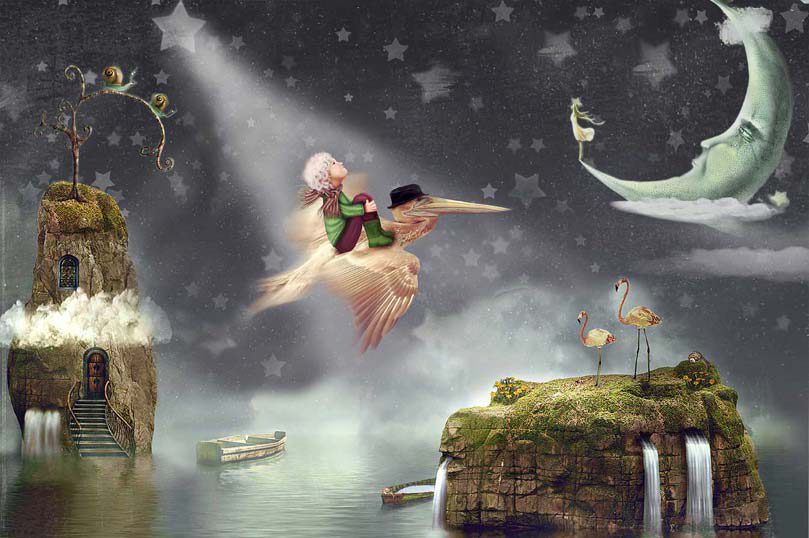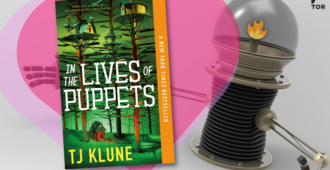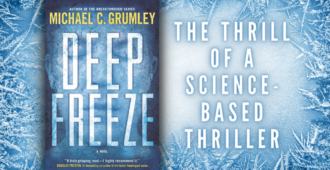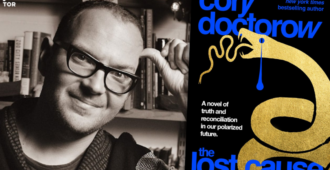opens in a new window Written by Kathleen Baldwin
Written by Kathleen Baldwin
What are dreams?
Are they breadcrumbs from another realm? Do they predict the future, or offer us symbols to help us navigate the present? Maybe dreams are simply the uninhibited neural firings of our brain at night, or are they keys, as Freud thought, to unlocking our secret fears?
Perhaps they are merely fanciful nonsense.
Fanciful though they might be, dreams inspire invention.
Dreams of flying plagued Leonardo Da Vinci, and motivated him to study how birds fly. Thus, he drew up plans for a glider and helicopter.
Do you dream of flying, I do? opens in a new window
In my topsy-turvy nocturnal world, I just start running, spread my arms, and take off. Watch out for powerlines, but otherwise soaring through the air is pure heaven. Pardon the pun.
When you were a kid, did you build wings? I tried to construct flying machines a number of times. That means I built various contraptions and took several nosedives from our tree house, and crashed. This may be why so many of the heroines in my books try to make wings.
Leonardo da Vinci said, “Things of the mind left untested by the senses are useless.” So, Da Vinci didn’t just draw flying machines, he built them and gave it a go. Historians say his glider flew quite well. His helicopter – not so much.
You’ve heard the saying: necessity is the mother of invention. Maybe. But it’s often our dreams that make us think we need something different in the first place. That means dreams are the seeds of invention.
Dreams are also the seeds of conquest.
As in the movie Inception, if we dream it; the impossible suddenly seems possible.
Alexander the Great gathered his armies and marched out to conquer Persia on the strength of his dreams. He knew it would be difficult, but he’d seen his success in a vision, so he knew he would succeed.
Did Alexander make his dreams a reality, or were his dreams prophetic?
According to Pliny’s Natural History Alexander the Great had other prophetic dreams. One showed him how to save his friend Ptolemaus dying from a festering wound. A dragon appeared holding a plant in its mouth that would draw out the poison. The next morning Alexander hurried to the place the dragon showed him in the dream. He found the plant, and used it to save his friend and many other soldiers with infected wounds.
Napoleon Bonaparte had dreams and visions, too. He envisioned a great empire stretching across three continents. Those dreams fueled his invasion of Europe and Egypt. Sadly, as Napoleon’s biographer, William Sloane, suggested, dreams as potent as those “intoxicate the imagination and disorder the mind.”
There’s the rub…
Dreams can drive us to madness.
opens in a new window That’s the fear my heroine, Tess, struggles with in Exile For Dreamers. Her prophetic dreams are a curse that will someday drive her mad as they did her mother, unless she finds a way to decipher their meanings and use them instead of fearing them.
That’s the fear my heroine, Tess, struggles with in Exile For Dreamers. Her prophetic dreams are a curse that will someday drive her mad as they did her mother, unless she finds a way to decipher their meanings and use them instead of fearing them.
I treasure my dreams. They’ve inspired several plots, and I’m not alone in that.
Without a doubt, dreams spawn creativity.
Literature owes much to dreams. They are the catalyst for many beloved books; Lewis Carroll’s Alice in Wonderland, E.B. White’s Stuart Little. Nightmares, too, inspire stories, as in the case of Edgar Allen Poe’s nightmare spawned tales, or Mary Shelley’s morbid dream that became the inspiration for Frankenstein.
What are dreams?
An elegant madness, or vivid inspiration.
The real question is . . .
What will your dreams become?
Buy Exile for Dreamers from:
opens in a new window opens in a new window
opens in a new window opens in a new window
opens in a new window opens in a new window
opens in a new window opens in a new window
opens in a new window opens in a new window
opens in a new window
Find out more about Kathleen Baldwin on Twitter at @KatBaldwin and on her website.






